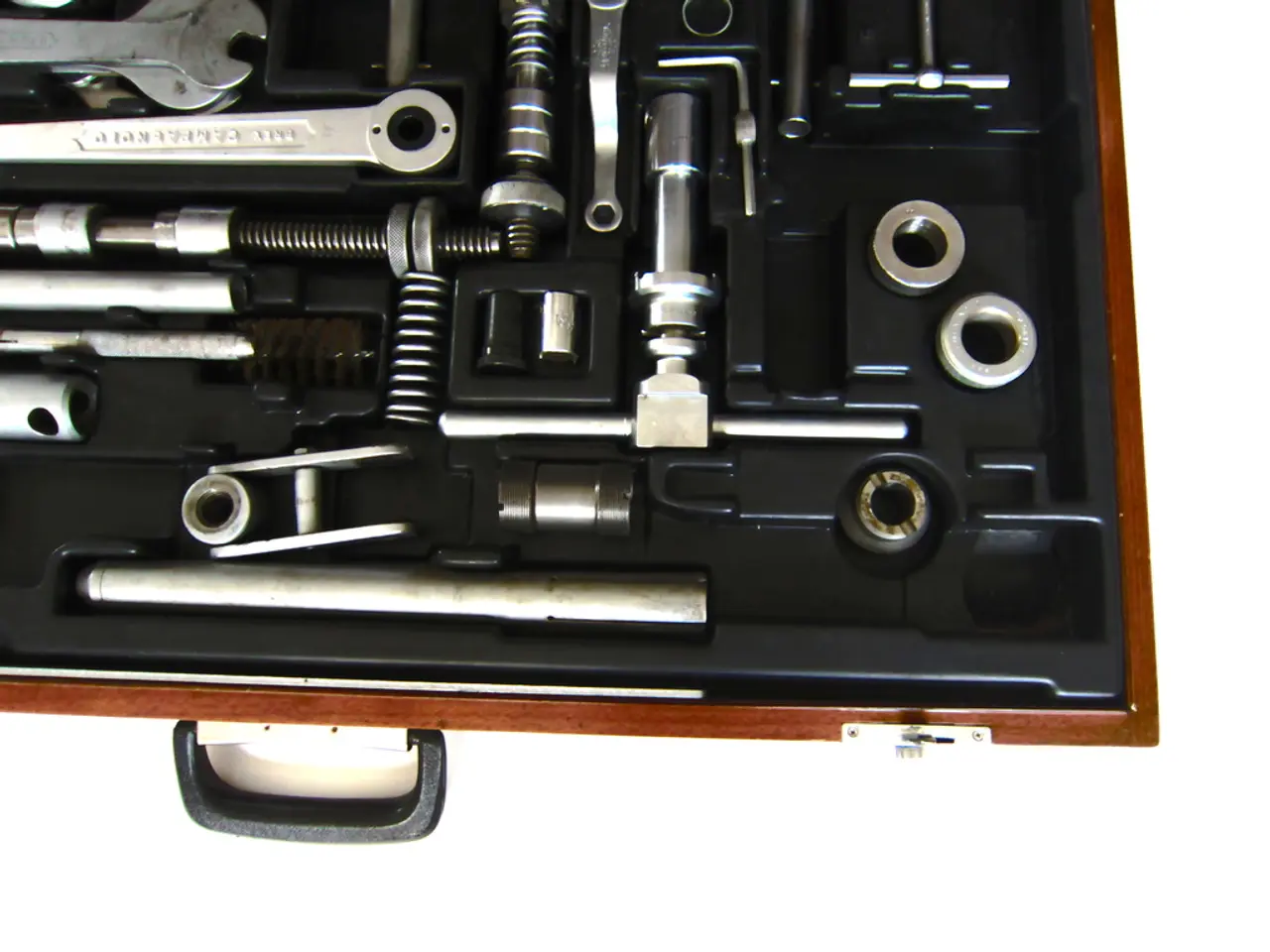Environmentally-friendly Garden Equipment for Simple and Green Habits
Starting a garden can be a rewarding experience, but it's essential to consider the environmental impact of the tools we use. Here's a guide to sustainable gardening tools that reduce waste, support eco-friendly practices, and promote a greener world.
A practical approach to incorporating eco-friendly gardening practices is to begin with a few essential tools, such as a hand trowel and a watering can, and expand the collection as comfort increases. As you delve deeper into gardening, you can explore a variety of sustainable tools, including garden forks, spades, broadforks, pruning shears, watering cans, and garden carts. These tools are often made from durable, biodegradable, or renewable materials.
Garden twine made from natural fibres like jute or hemp decomposes over time, unlike synthetic twine. Compost bins made from recycled materials help turn kitchen scraps into nutrient-rich compost. Biodegradable gardening supplies, such as wool pellets, natural beeswax food wraps for produce storage, and bamboo-made tools, reduce reliance on non-renewable plastic-based items and minimize waste.
The benefits of these sustainable and biodegradable tools and supplies are numerous. They support soil health and minimise disturbance, use renewable resources, reduce chemical inputs, lower plastic waste, and decrease landfill waste and carbon footprint. Environmentally, these practices favour reduced plastic pollution, lower chemical run-off, improved biodiversity, and enhanced soil and water conservation—key pillars of eco-friendly gardening.
Biodegradable pots break down naturally in the soil, reducing waste. Watering cans made from recycled plastic are lightweight and eco-friendly. Plant pots made from coconut coir are biodegradable and promote healthy roots. Hand tools made from recycled metals are durable and eco-friendly.
Researching tools made from recycled materials or that are biodegradable is an effective way to start using sustainable outdoor tools. Reading reviews from other gardeners about the tools of interest can help pick the best ones for specific needs. Plant pots made from materials like coconut coir or recycled paper can be planted directly into the soil.
Using eco-friendly gardening practices reduces pollution by minimising the carbon footprint. Sustainable tools are cost-effective in the long run as they last longer. Visiting local gardening shops and asking about their sustainable options can reveal a wide variety of choices. When choosing green gardening accessories, it's important to consider material matters, durability, multi-functionality, and local products.
Mulch mats made from organic materials help keep weeds down and moisture in, and they break down and enrich the soil. Sustainable gardening tools are made from materials that are either recycled or sourced sustainably, such as wooden handles from responsibly managed forests. Using solar-powered tools reduces reliance on fossil fuels. Sustainable tools promote healthier soil, for example, using a composting tool helps create nutrient-rich soil.
In conclusion, embracing sustainable gardening practices not only benefits the environment but also contributes to a healthier, more eco-friendly lifestyle. By making informed choices about the tools we use, we can support a greener future and enjoy the rewards of gardening with a clear conscience.
- Incorporating sustainable tools into your gardening, such as hand trowels, watering cans, garden forks, pruning shears, and garden carts made from biodegradable or renewable materials, can help promote a greener lifestyle.
- As you expand your garden beyond the basics, consider utilizing eco-friendly alternatives like garden twine made from natural fibers, compost bins created from recycled materials, and biodegradable gardening supplies such as wool pellets, natural beeswax food wraps, and bamboo tools, all of which reduce waste and promote a more sustainable home-and-garden lifestyle.




